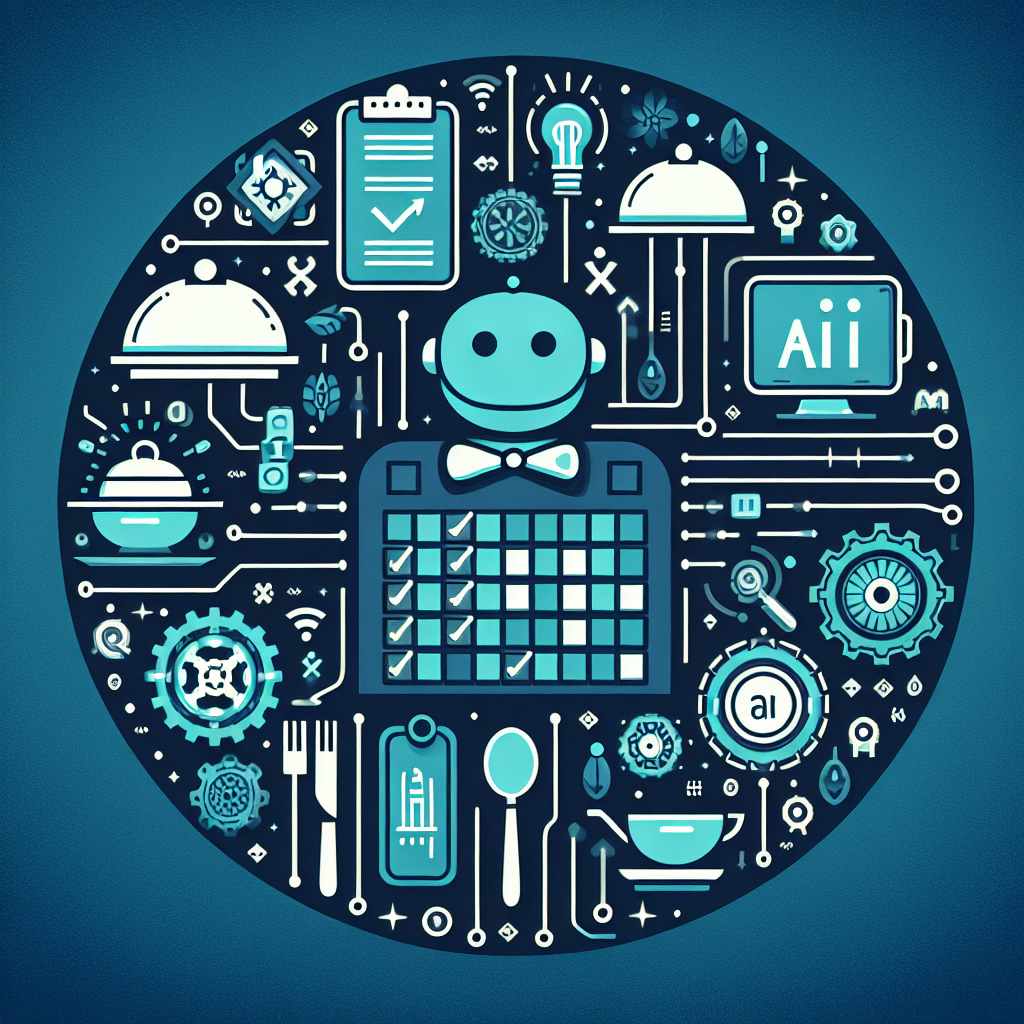AI Technology: Enhancing Staff Scheduling and Productivity in Hospitality
The hospitality industry is known for its fast-paced environment, where customer satisfaction is key. In order to provide top-notch service, hotels, restaurants, and other establishments in the hospitality sector must ensure that they have the right staff in the right place at the right time. This is where AI technology comes in, offering innovative solutions to enhance staff scheduling and productivity.
AI technology, also known as artificial intelligence, refers to the simulation of human intelligence in machines that are programmed to think and act like humans. In the context of staff scheduling in the hospitality industry, AI can be used to analyze historical data, predict future demand, and optimize staffing levels to meet customer needs efficiently.
One of the main benefits of using AI technology for staff scheduling in hospitality is the ability to automate the process. Traditionally, scheduling staff can be a time-consuming and labor-intensive task, requiring managers to manually input data, consider various factors such as employee availability and skill level, and make adjustments as needed. With AI technology, this process can be streamlined and optimized, allowing managers to focus on other important tasks.
AI can also help improve staff productivity by identifying trends and patterns in customer behavior, allowing managers to allocate resources more effectively. For example, AI algorithms can analyze data to determine peak times of customer traffic, enabling managers to schedule more staff during these periods and reduce staffing levels during slower times. This not only improves customer service but also helps to reduce labor costs.
Furthermore, AI technology can help reduce the likelihood of scheduling errors, such as double bookings or understaffing. By analyzing data in real-time and making adjustments as needed, AI can help ensure that the right number of staff is scheduled to meet customer demand, ultimately leading to improved efficiency and customer satisfaction.
In addition to staff scheduling, AI technology can also be used to enhance other aspects of hospitality operations, such as inventory management, customer service, and marketing. For example, AI-powered chatbots can be used to provide personalized recommendations to guests, while AI algorithms can analyze customer feedback to identify trends and improve service quality.
FAQs:
Q: How does AI technology improve staff scheduling in hospitality?
A: AI technology can analyze historical data, predict future demand, and optimize staffing levels to meet customer needs efficiently. By automating the scheduling process and identifying trends in customer behavior, AI helps managers allocate resources more effectively and reduce scheduling errors.
Q: Can AI technology help reduce labor costs in the hospitality industry?
A: Yes, AI technology can help reduce labor costs by analyzing data to determine peak times of customer traffic and optimizing staffing levels accordingly. By scheduling the right number of staff to meet customer demand, managers can improve efficiency and reduce unnecessary labor costs.
Q: What other benefits does AI technology offer to the hospitality industry?
A: In addition to staff scheduling, AI technology can also be used to enhance other aspects of hospitality operations, such as inventory management, customer service, and marketing. By analyzing data and identifying trends, AI helps managers make informed decisions to improve service quality and customer satisfaction.
In conclusion, AI technology is revolutionizing the way staff scheduling is done in the hospitality industry. By automating the process, optimizing staffing levels, and improving productivity, AI technology offers innovative solutions to help hotels, restaurants, and other establishments provide top-notch service to their customers. As the hospitality industry continues to evolve, AI technology will undoubtedly play a crucial role in enhancing efficiency, reducing costs, and improving overall customer satisfaction.

